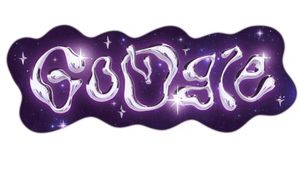YOGYAKARTA - Many people still wonder and worry whether epilepsy is contagious? Epilepsy is also known as epilepsy. Many think that this disease can be transmitted through saliva. The fact is epilepsy is not a contagious disease. '
Epilepsy is a disorder of the central nervous system (neurological) in the form of abnormal brain activity. Epilepsy can make sufferers experience seizures, wetting the bed, biting the tongue, until they lose consciousness.
Is Epilepsy Contagious?
So you don't need to worry anymore and ask whether epilepsy is contagious? This disease is not proven to be contagious. The saying that the saliva of an epileptic patient can be transmitted to other people is just a myth.
Classic symptoms such as when an epileptic patient salivates makes many people reluctant to help him. People with recurrent epilepsy will indeed secrete frothy saliva. Many people will avoid when people with epilepsy experience this symptom. However, this disease is not contagious.
Epilepsy can infect anyone, both men and women, and people of all ages. Some people with epilepsy require lifelong treatment to control their seizures.
Causes of Epilepsy
Epilepsy can be caused by several factors. Here are a number of things that can cause epilepsy.
- Congenital disorders or genetic conditions with malformations of the brain
- Brain damage due to prenatal or perinatal (eg trauma at birth, loss of oxygen, to low birth weight)
- Severe head injury
- Certain genetic syndromes
- Stroke that makes the circulation of oxygen to the brain becomes obstructed
- Brain tumor
- Brain infections, such as meningitis, encephalitis or neurocyticercosis
SEE ALSO:
Myths Around Epilepsy
There are many myths about epilepsy that have spread in society. Some of the myths that are believed are not proven true. Here are the myths.
1. Contagious Epilepsy
Myth: Epilepsy is Contagious
Fact: As previously discussed, epilepsy is not contagious.
2. Mental illness
Myth: People with Epilepsy are mentally ill
Fact: Epilepsy is a functional, physical, not mental problem, and has many unidentifiable causes. Symptoms of seizures experienced by people with epilepsy are not related to psychology.
3. Have a Low IQ
Myth: People with epilepsy are not as smart as other people or have a lower IQ
Fact: This statement is not true. Epilepsy has no effect on a person's ability to think, except during some seizures and occasionally as a side effect of certain antiepileptic medications.
4. Uncontrollable
Myth: Epilepsy cannot be controlled effectively
Truth: There are many ways to treat Epilepsy. With antiepileptic drugs, it is possible to adequately control seizures in up to 70% of patients.
5. Have Seizures Mean Epilepsy
Myth: If you've ever had a seizure, you have epilepsy
Fact: A person is diagnosed with Epilepsy when they have 2 or more unprovoked (sudden) seizures that occur more than 24 hours apart. But if something is causing the seizures, such as excessive alcohol consumption, lack of sleep, or a new medication, it is not related to epilepsy.
6. Can Swallow and Choke on Saliva during Seizures
Myth: During a seizure, a person can swallow or choke on the tongue
Fact: During more intense seizures, a person may bite their tongue. But there are no serious problems that can occur with swallowing and choking on saliva. However, trying to force open the mouth of a person having a seizure can cause sores to the lips or gums.
7. Must Put Something Into the Mouth of a Seizure
Myth: You have to force something into the mouth of someone who is having a seizure
Fact: Under no circumstances should you put anything in someone's mouth if they are having a seizure. This can seriously injure them. Turn the person onto their side, keeping a safe distance from nearby objects, and let the seizure run its course.
8. Seizures are torturous
Myth: Seizures are painful
Fact: A person is unconscious and feels no pain during most seizures. When the seizure is over, the patient may experience discomfort or muscle pain if the tongue falls around during the seizure.
Thus a review of whether epilepsy is contagious. It turns out that epilepsy is not a contagious disease. The myth that so far says that the saliva of people with epilepsy can be contagious turns out to be wrong.
Keep up with the latest domestic and foreign news on VOI. We present the latest and updated news, both nationally and internationally.
The English, Chinese, Japanese, Arabic, and French versions are automatically generated by the AI. So there may still be inaccuracies in translating, please always see Indonesian as our main language. (system supported by DigitalSiber.id)



















